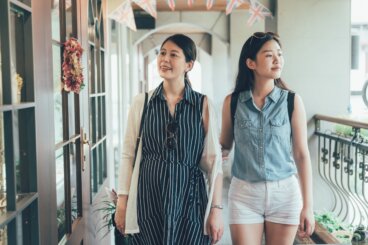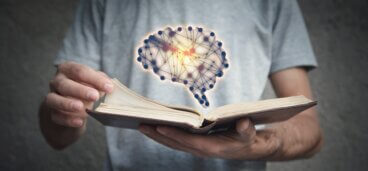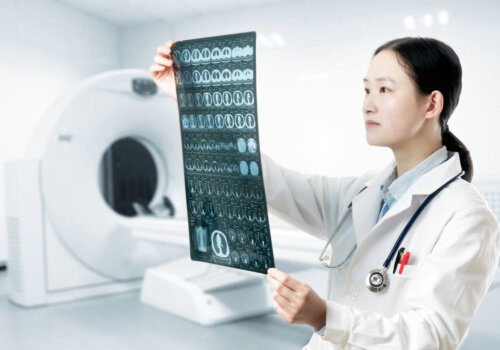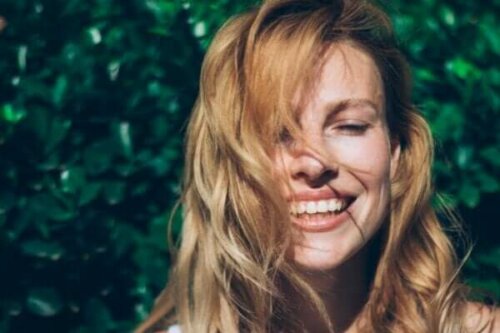ストレスマネージメントの7つのコツ
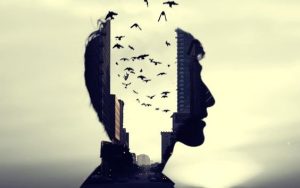
現代社会で最大の問題のひとつであるストレス。特に先進国で著しい問題です。ハイスピードの世界で落ち着いていられるのは簡単ではありません。今日の巨大都市の騒音やよそよそしさにうまく対応するのも簡単ではありません。これらのお陰で、ストレスマネージメントは難しいタスクです。
短期的にも長期的にも、ストレスは精神と体に害をなします。多くの肉体的な病気は、ストレス過多から起こります。同時に、ストレスはわたしたちのこころをブロックするため、しっかりと考えることができず、人間関係に影響を及ぼします。
でも、怖がらないでください。ストレスをマネージメントすることは、簡単なメソッドを使えば可能です。ここでご紹介するいくつかのことをやめたり適用したりすればうまくいきます。
「休んでください:休ませた土地は、豊かに実ります。」
-Ovid-
1. ストレスが始まった時を特定する
ぱっと見ほどストレスを認識するのは簡単ではないかもしれません。よく、すでに高いレベルに達してからはじめてストレスを感じていることに気づきます。
ストレスは、物理的・感情的に現れます。すぐに激しさを増したり、しばらく潜んでいたりします。
ストレスの身体的サインは、筋肉の緊張、特に顎、首、肩などです。また、顔も緊張させるため、唇を結んだような表情になります。
感情的に、苦しみが混ざったいらだちの感情が現れます。これらの感情は、このストレスに終止符と打つようにわたしたちに警告しています。
2. 呼吸法を学ぶ
呼吸はわたしたちが常に行っていることです。ストレスマネージメントのツールとして常に使えます。生活に平安を取り戻すための素晴らしい方法です。ゆっくりした、リズミカルな呼吸法は、迷走神経を活性化させることが証明されています。
必要なのは、快適なポジションを見つけ、深く息するだけです。肺が空気でいっぱいになるようフォーカスしてください。それから、ゆっくり息を吐き出してください。これを2,3分行ったら、ストレスが軽減します。
3. 意識をそらす
ストレスは戦いあるいは恐怖反応と関連しています。だからすべての意識が緊張を生み出すものに向けられます。
この情動不安の源にフォーカスすればするほど、もっとストレスを感じるようになります。
だから、意識をそらすことが大事です。自分の周りのものを見てください。意識の中でそれを説明してください。できるだけ事細かにです。
それから、他の2つの物体で同じように試してみてください。これはストレスをマネージメントするのに役立ちます。あなたの脈を制限し、身近な感情的な見方を広げます。

4. リラックスさせるイメージを見る
イメージは、感覚とそれを見る人を繋げます。だから、リラックスさせるものの写真やイメージをそばに置いておくことが大事です。景観、特に孤立した場所あるいは冷たい気候や、緑、たくさんの水関連のものがおすすめです。
あなたがストレスを感じているとき、これらのイメージを見ることでリラックスできます。あなたの精神を情動不安を軽減する快適なものにフォーカスする方法でもあります。
5. 経験を再解釈する
時々、ストレスにフォーカスすると悪化します。もっと苦しみを感じ、できるだけ早くストレスをどうにかしたいと思います。これは簡単とは限らないため、落ち着くどころか心配になります。
ストレスを特定し受け入れ、それからコントロールする方法を試すことが重要です。
現れるすべてのストレスを認識するようにしてください。体はどのように感じますか?あなたはどのように座って、あるいは立っていますか?あなたの呼吸の速さはどうですか?どんな考えがこころに浮かびますか?
これらの質問は、自分の感じることを解釈する助けになります。それから、緊張の感覚は少しずつ消えます。

6. 反ストレスの物理的姿勢を習得する
ストレス姿勢と反ストレス姿勢があります。ストレス姿勢は、例えばひねって足を組んで座ることです。一定のペースで足をひねっているのは、ストレスのサインの可能性があります。背中を丸めたり、顔がこわばっているのもそうです。
逆に、背中をまっすぐにして顔を動かすのは、ストレスマネージメントに有効です。自身と安心感をもたらしてくれるポジションです。 Health Psychologyの研究によれば、この姿勢はコルチゾールの分泌も促してくれます。
7. 手でシンプルなエクササイズをする
2つの手で強く握りこぶしをつくり、それをひらくと、ストレスを軽減することが証明されています。これは激しいジェスチャーであるため、緊張をほぐすのを助けてくれます。
これら一つ一つの小さなコツがストレスマネージメントに効果的です。モダン世界ではストレスを感じることが当たり前です。大きな都市に住んでいるならなおさらです。重要なことは、コントロールしようとするよりも、ストレスにとらわれないことです。
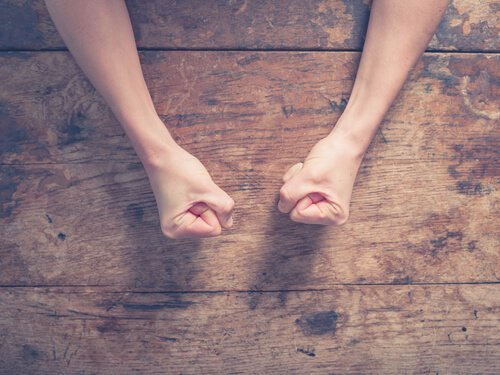
現代社会で最大の問題のひとつであるストレス。特に先進国で著しい問題です。ハイスピードの世界で落ち着いていられるのは簡単ではありません。今日の巨大都市の騒音やよそよそしさにうまく対応するのも簡単ではありません。これらのお陰で、ストレスマネージメントは難しいタスクです。
短期的にも長期的にも、ストレスは精神と体に害をなします。多くの肉体的な病気は、ストレス過多から起こります。同時に、ストレスはわたしたちのこころをブロックするため、しっかりと考えることができず、人間関係に影響を及ぼします。
でも、怖がらないでください。ストレスをマネージメントすることは、簡単なメソッドを使えば可能です。ここでご紹介するいくつかのことをやめたり適用したりすればうまくいきます。
「休んでください:休ませた土地は、豊かに実ります。」
-Ovid-
1. ストレスが始まった時を特定する
ぱっと見ほどストレスを認識するのは簡単ではないかもしれません。よく、すでに高いレベルに達してからはじめてストレスを感じていることに気づきます。
ストレスは、物理的・感情的に現れます。すぐに激しさを増したり、しばらく潜んでいたりします。
ストレスの身体的サインは、筋肉の緊張、特に顎、首、肩などです。また、顔も緊張させるため、唇を結んだような表情になります。
感情的に、苦しみが混ざったいらだちの感情が現れます。これらの感情は、このストレスに終止符と打つようにわたしたちに警告しています。
2. 呼吸法を学ぶ
呼吸はわたしたちが常に行っていることです。ストレスマネージメントのツールとして常に使えます。生活に平安を取り戻すための素晴らしい方法です。ゆっくりした、リズミカルな呼吸法は、迷走神経を活性化させることが証明されています。
必要なのは、快適なポジションを見つけ、深く息するだけです。肺が空気でいっぱいになるようフォーカスしてください。それから、ゆっくり息を吐き出してください。これを2,3分行ったら、ストレスが軽減します。
3. 意識をそらす
ストレスは戦いあるいは恐怖反応と関連しています。だからすべての意識が緊張を生み出すものに向けられます。
この情動不安の源にフォーカスすればするほど、もっとストレスを感じるようになります。
だから、意識をそらすことが大事です。自分の周りのものを見てください。意識の中でそれを説明してください。できるだけ事細かにです。
それから、他の2つの物体で同じように試してみてください。これはストレスをマネージメントするのに役立ちます。あなたの脈を制限し、身近な感情的な見方を広げます。

4. リラックスさせるイメージを見る
イメージは、感覚とそれを見る人を繋げます。だから、リラックスさせるものの写真やイメージをそばに置いておくことが大事です。景観、特に孤立した場所あるいは冷たい気候や、緑、たくさんの水関連のものがおすすめです。
あなたがストレスを感じているとき、これらのイメージを見ることでリラックスできます。あなたの精神を情動不安を軽減する快適なものにフォーカスする方法でもあります。
5. 経験を再解釈する
時々、ストレスにフォーカスすると悪化します。もっと苦しみを感じ、できるだけ早くストレスをどうにかしたいと思います。これは簡単とは限らないため、落ち着くどころか心配になります。
ストレスを特定し受け入れ、それからコントロールする方法を試すことが重要です。
現れるすべてのストレスを認識するようにしてください。体はどのように感じますか?あなたはどのように座って、あるいは立っていますか?あなたの呼吸の速さはどうですか?どんな考えがこころに浮かびますか?
これらの質問は、自分の感じることを解釈する助けになります。それから、緊張の感覚は少しずつ消えます。

6. 反ストレスの物理的姿勢を習得する
ストレス姿勢と反ストレス姿勢があります。ストレス姿勢は、例えばひねって足を組んで座ることです。一定のペースで足をひねっているのは、ストレスのサインの可能性があります。背中を丸めたり、顔がこわばっているのもそうです。
逆に、背中をまっすぐにして顔を動かすのは、ストレスマネージメントに有効です。自身と安心感をもたらしてくれるポジションです。 Health Psychologyの研究によれば、この姿勢はコルチゾールの分泌も促してくれます。
7. 手でシンプルなエクササイズをする
2つの手で強く握りこぶしをつくり、それをひらくと、ストレスを軽減することが証明されています。これは激しいジェスチャーであるため、緊張をほぐすのを助けてくれます。
これら一つ一つの小さなコツがストレスマネージメントに効果的です。モダン世界ではストレスを感じることが当たり前です。大きな都市に住んでいるならなおさらです。重要なことは、コントロールしようとするよりも、ストレスにとらわれないことです。

引用された全ての情報源は、品質、信頼性、時代性、および妥当性を確保するために、私たちのチームによって綿密に審査されました。この記事の参考文献は、学術的または科学的に正確で信頼性があると考えられています。
- American Psychological Association [APA]. (2007). Stress a Major Health Problem in The U.S., Warns APA. Consultado el 30 de marzo de 2023. https://www.apa.org/news/press/releases/2007/10/stress
- Biradar, S. & Patil, A. (2021). Effectiveness of Guided Imagery Technique in Reduction of Stress Level among Chronic Renal Failure Patients. Indian Journal of Forensic Medicine & Toxicology, 15(3), 4105-4111. https://medicopublication.com/index.php/ijfmt/article/view/15938
- Burg, M. M., Schwartz, J. E., Kronish, I. M., Diaz, K. M., Alcantara, C., Duer-Hefele, J., & Davidson, K. W. (2017). Does Stress Result in You Exercising Less? Or Does Exercising Result in You Being Less Stressed? Or Is It Both? Testing the Bi-directional Stress-Exercise Association at the Group and Person (N of 1) Level. Annals of behavioral medicine : a publication of the Society of Behavioral Medicine, 51(6), 799–809. https://www.ncbi.nlm.nih.gov/pmc/articles/PMC5597451/
- Can, Y. S., Iles-Smith, H., Chalabianloo, N., Ekiz, D., Fernández-Álvarez, J., Repetto, C., Riva, G., & Ersoy, C. (2020). How to Relax in Stressful Situations: A Smart Stress Reduction System. Healthcare (Basel, Switzerland), 8(2), 100. https://www.ncbi.nlm.nih.gov/pmc/articles/PMC7349817/
- Choi, D. W., Chun, S. Y., Lee, S. A., Han, K. T. & Park, E. C. (2018). Association between sleep duration and perceived stress: salaried worker in circumstances of high workload. International journal of environmental research and public health, 15(4), 1-11. https://www.ncbi.nlm.nih.gov/pmc/articles/PMC5923
- Cleveland Clinic. (2021, January 28). Stress. Consultado el 30 de marzo de 2023. https://my.clevelandclinic.org/health/articles/11874-stress
- Dolbier, C. L. & Rush, T. E. (2012). Efficacy of abbreviated progressive muscle relaxation in a high-stress college sample. International Journal of Stress Management, 19(1), 48-68. https://psycnet.apa.org/record/2012-04979-002
- de la Torre, A., Caparros, R. A., Bastard, T., Vico, F. J. & Buela, G. (2017). Acute stress recovery through listening to Melomics relaxing music: A randomized controlled trial. Nordic Journal of Music Therapy, 26(2), 124-141. https://www.tandfonline.com/doi/abs/10.1080/08098131.2015.1131186
- Emmons, R. A. (2007). Thanks!: How the new science of gratitude can make you happier. Houghton Mifflin Harcourt.
- Ewert, A. & Chang, Y. (2018). Levels of nature and stress response. Behavioral Sciences, 8(5), 1-13. https://www.ncbi.nlm.nih.gov/pmc/articles/PMC5981243/
- Fekete, E. & Deichert, N. (2022). A brief gratitude writing intervention decreased stress and negative affect during the COVID-19 pandemic. Journal of Happiness Studies, 23(6), 2427-2448. https://www.ncbi.nlm.nih.gov/pmc/articles/PMC8867461/.
- Ford, B. Q., Lam, P., John, O. P. & Mauss, I. B. (2018). The psychological health benefits of accepting negative emotions and thoughts: Laboratory, diary, and longitudinal evidence. Journal of personality and social psychology, 115(6), 1075-1092. https://www.ncbi.nlm.nih.gov/pmc/articles/PMC5767148/
- Gerritsen, R. J. & Band, G. P. (2018). Breath of life: The respiratory vagal stimulation model of contemplative activity. Frontiers in human neuroscience, 12(397), 1-25. https://www.ncbi.nlm.nih.gov/pmc/articles/PMC6189422/
- Gonzalez, M. J. & Miranda-Massari, J. R. (2014). Diet and stress. Psychiatric Clinics, 37(4), 579-589. https://pubmed.ncbi.nlm.nih.gov/25455067/
- Grassini, S. (2022). A systematic review and meta-analysis of nature walk as an intervention for anxiety and depression. Journal of Clinical Medicine, 11(6), 1-15. https://www.ncbi.nlm.nih.gov/pmc/articles/PMC8953618/
- Hasegawa, H., Uozumi, T.& Ono, K. (2004). Psychological and physiological evaluations of music listening for mental stress. The Hokkaido Journal of Medical Science, 79(3), 225-235. https://europepmc.org/article/med/15188631
- Jallo, N., Ruiz, R. J., Elswick, R. K. & French, E. (2014). Guided imagery for stress and symptom management in pregnant African American women. Evidence-based complementary and alternative medicine, 2014, 1-14. https://www.hindawi.com/journals/ecam/2014/840923/
- Jerath, R., Crawford, M. W., Barnes, V. A. & Harden, K. (2015). Self-regulation of breathing as a primary treatment for anxiety. Applied psychophysiology and biofeedback, 40(2), 107-115. https://link.springer.com/article/10.1007/s10484-015-9279-8
- Jo, H., Song, C. & Miyazaki, Y. (2019). Physiological benefits of viewing nature: A systematic review of indoor experiments. International Journal of Environmental Research and Public Health, 16(23), 1-23. https://www.ncbi.nlm.nih.gov/pmc/articles/PMC6926748/
- Kugali, S. N. & Natekar, D. S. (2020). Best Remedy: Effective and Safe Therapy as Guided Imagery in Cancer Patients. Indian Journal of Public Health Research & Development, 11(8), 122-126. https://medicopublication.com/index.php/ijphrd/article/view/10193
- Leger, K. A., Charles, S. T. & Almeida, D. M. (2020). Positive emotions experienced on days of stress are associated with less same-day and next-day negative emotion. Affective science, 1(1), 20-27. https://www.ncbi.nlm.nih.gov/pmc/articles/PMC8188996/
- Liu, J. J., Ein, N., Gervasio, J. & Vickers, K. (2019). The efficacy of stress reappraisal interventions on stress responsivity: A meta-analysis and systematic review of existing evidence. PLoS One, 14(2),1-22. https://journals.plos.org/plosone/article?id=10.1371/journal.pone.0212854
- Li, F., Luo, S., Mu, W., et al. (2021). Effects of sources of social support and resilience on the mental health of different age groups during the COVID-19 pandemic. BMC psychiatry, 21, 1-14. https://www.ncbi.nlm.nih.gov/pmc/articles/PMC7789076/.
- Ma, X., Yue, Z. Q., Gong, Z., et al. (2017). The effect of diaphragmatic breathing on attention, negative affect and stress in healthy adults. Frontiers in psychology, 8(874), 1-12. https://www.frontiersin.org/articles/10.3389/fpsyg.2017.00874/full?fbclid=IwAR2Yzjbt9glZxPoMDRnRf4MkzvFXHhspagUowQFODilbJlyNhI1gdw8DSAM
- Nair, S., Sagar, M., Sollers, J., Consedine, N. & Broadbent, E. (2015). Do slumped and upright postures affect stress responses? A randomized trial. Health Psychology, 34(6), 632-641. https://psycnet.apa.org/doiLanding?doi=10.1037%2Fhea0000146
- National Health Service. (2022, November 22). Stress. Consultado el 30 de marzo de 2023. https://www.nhs.uk/mental-health/feelings-symptoms-behaviours/feelings-and-symptoms/stress/
- Nollet, M., Wisden, W. & Franks, N. P. (2020). Sleep deprivation and stress: a reciprocal relationship. Interface focus, 10(3), 1-11. https://www.ncbi.nlm.nih.gov/pmc/articles/PMC7202382/
- Novais, P. G. N., Batista, K. D. M., Grazziano, E. D. & Amorim, M. H. C. (2016). The effects of progressive muscular relaxation as a nursing procedure used for those who suffer from stress due to multiple sclerosis1. Revista latino-americana de enfermagem, 24. https://www.scielo.br/j/rlae/a/XzGJgYLV9NkwKxWvdq3f6SN/abstract/?lang=en
- Olafsdottir, G., Cloke, P., Schultz, A., van Dyck, Z., Eysteinsson, T., Thorleifsdottir, B. & Vögele, C. (2016). Walking in nature has a stress-buffering effect on chronic but not acute stress. European Health Psychologist, 18, 486-486. https://www.ehps.net/ehp/index.php/contents/article/view/1839
- Peen, J., Dekker, J., Schoevers, R. A., Have, M. T., de Graaf, R. & Beekman, A. T. (2007). Is the prevalence of psychiatric disorders associated with urbanization? Social Psychiatry and Psychiatric Epidemiology, 42, 984-989. https://link.springer.com/article/10.1007/s00127-007-0256-2
- Schultchen, D., Reichenberger, J., Mittl, T., Weh, T. R., Smyth, J. M., Blechert, J. & Pollatos, O. (2019). Bidirectional relationship of stress and affect with physical activity and healthy eating. British journal of health psychology, 24(2), 315-333. https://www.ncbi.nlm.nih.gov/pmc/articles/PMC6767465/.
- Tost, H., Champagne, F. A. & Meyer, A. (2015). Environmental influence in the brain, human welfare and mental health. Nature neuroscience, 18(10), 1421-1431. https://www.nature.com/articles/nn.4108
- Toussaint, L., Nguyen, Q. A., Roettger, C., Dixon, K., Offenbächer, M., Kohls, N., … & Sirois, F. (2021). Effectiveness of progressive muscle relaxation, deep breathing, and guided imagery in promoting psychological and physiological states of relaxation. Evidence-Based Complementary and Alternative Medicine, 2021, 1-8. https://www.hindawi.com/journals/ecam/2021/5924040/
- Uusberg, A., Thiruchselvam, R. & Gross, J. J. (2014). Using distraction to regulate emotion: Insights from EEG theta dynamics. International Journal of Psychophysiology, 91(3), 254-260. https://www.sciencedirect.com/science/article/abs/pii/S0167876014000075?via%3Dihub
- Vlemincx, E., Van Diest, I. & Van den Bergh, O. (2016). A sigh of relief or a sigh to relieve: The psychological and physiological relief effect of deep breaths. Physiology & behavior, 165, 127-135. https://www.sciencedirect.com/science/article/abs/pii/S0031938416305121
- Yaribeygi, H., Panahi, Y., Sahraei, H., Johnston, T. P. & Sahebkar, A. (2017). The impact of stress on body function: A review. EXCLI journal, 16, 1057-1072. https://www.ncbi.nlm.nih.gov/pmc/articles/PMC5579396/.
- Witten, E., Ryynanen, J., Wisdom, S., Tipp, C. & Chan, S. W. (2023). Effects of soothing images and soothing sounds on mood and well‐being. British Journal of Clinical Psychology, 62(1), 158-179. https://bpspsychub.onlinelibrary.wiley.com/doi/abs/10.1111/bjc.12400
- World Health Organization. (2022, 5 de octubre). Physical activity. https://www.who.int/news-room/fact-sheets/detail/physical-activity
このテキストは情報提供のみを目的としており、専門家との相談を代替するものではありません。疑問がある場合は、専門家に相談してください。



